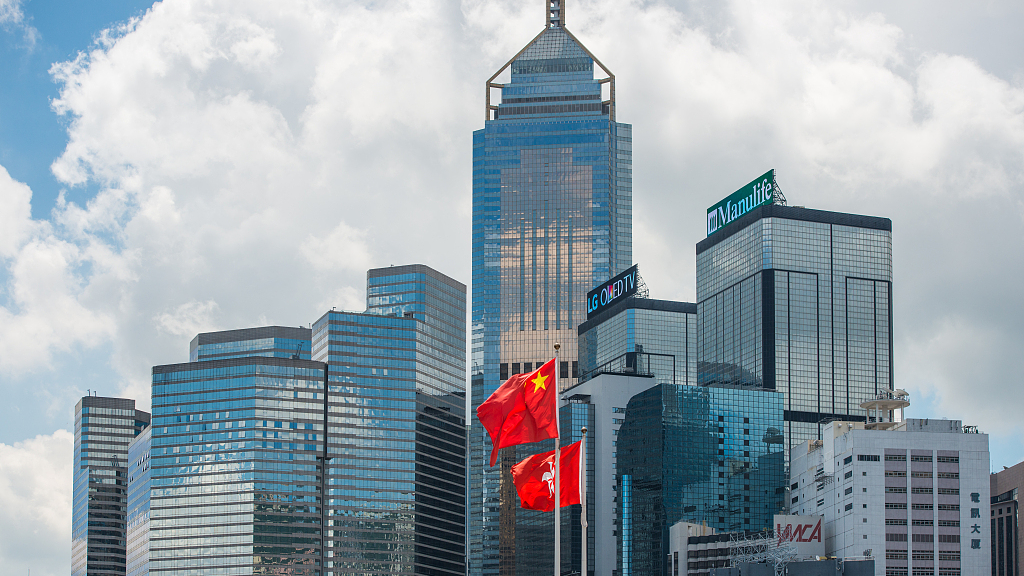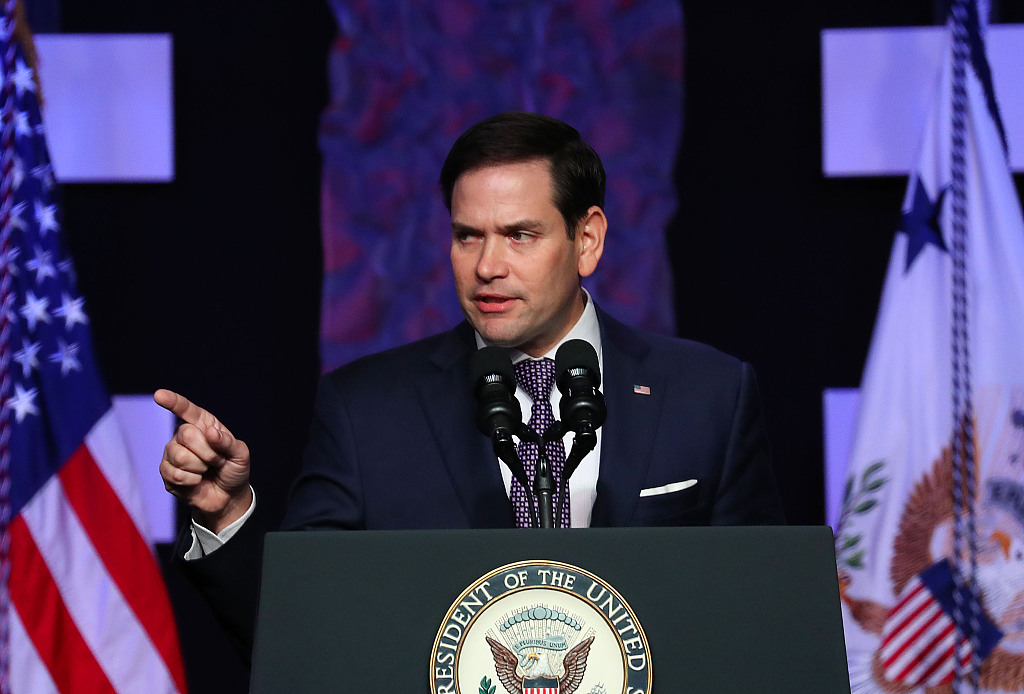
Editor's Note: Simon Guliang is a current affair commentator based in Beijing. The article reflects the author's opinions, not necessarily the views of CGTN.
This week, the U.S. Senate and House of Representatives passed the Hong Kong Human Rights and Democracy Act. Under the act, the United States will reaffirm "Hong Kong's autonomous status" every year and impose sanctions on officials responsible for human rights violations in the city.
Sounds familiar to U.S. "prescription" in dealing with protests in foreign countries, isn't it?
As you all know, protests in Hong Kong have nothing to do with democracy or freedom. According to Canada's Fraser Institute's 2019 annual report on economic freedom, Hong Kong has maintained the top position for several consecutive years, and remains the freest region and economy in the world.
The United States ranks 23 in the report. However, are arson, street riots, occupation of schools, confrontation with the police, and attacks on innocents – the killing of the cleaner who was set on fire for expressing opposing views – symbols of democracy and freedom? U.S. Senate's passing of the Hong Kong Human Rights and Democracy Act under these circumstances openly endorses radical protesters and violence in a blatant act of interference in China's internal affairs.
It should be said that some American politicians, such as Senator Marco Rubio, an active anti-China advocate, have made great efforts to push the bill through. In fact, whether he really cares about the democracy and freedom of Hong Kong people is questionable. Make no mistake, his job is to find a way to pass even the most ridiculous bills for votes and the patrons behind them.

Senator Marco Rubio, a staunch proponent of U.S. interference in Hong Kong. /VCG Photo
Senator Marco Rubio, a staunch proponent of U.S. interference in Hong Kong. /VCG Photo
Secondly, it's probably the most standard political correctness in Washington to hold the anti-China banner. This has become a new American political trend. Especially before the 2020 presidential election, there is no safer and more popular way than accusing and blaming China for terrible crimes. And when you realize that you can scream at China across the ocean at a safe distance with impunity, it becomes an enjoyable thing to do.
Obviously, the struggle between China and the United States is escalating. It seems that some people in the United States sincerely hope to use the Hong Kong issue to put pressure on China to solve other problems. Besides the trade war, there are also problems with the South China Sea and Taiwan. These are matters of China's core interests. None of them, however, poses a real threat to the United States. The current U.S. administration is very clear about this. This is why President Donald Trump has overall kept his hands off of the situation in Hong Kong.
However, this bill doesn't serve Hong Kong residents' interests. It sends the wrong signal to violent protesters and rioters by creating an illusion that this is "democratic fighter's fighting" and that Uncle Sam has finally heard the voice of the people. With political and material support from the U.S., there will be more violence and disorder in Hong Kong. This bill will create a vicious circle of chaos in the city.
There's another interesting detail: The bill does not mention economic or financial sanctions against Hong Kong. For the U.S., imposing economic sanctions on other countries is an old routine. So, what's going on? This is definitely not the result of the discovery of conscience, but because that the U.S. still has a lot of economic interest in Hong Kong, and severing the connection with one of the most important financial free zones in the world would deal a blow to the U.S. economy. Obviously, they can't risk engaging in a suicide mission.
(If you want to contribute and have specific expertise, please contact us at opinions@cgtn.com.)